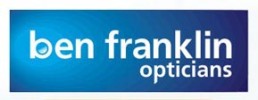Filter interviews by
SMC Corporation Interview Questions and Answers
15 Interview questions
I have over five years of experience in retail management, focusing on team leadership and customer service excellence.
Led a team of 10 staff members in a busy retail environment, improving sales by 20% over two years.
Implemented training programs that reduced employee turnover by 15%.
Managed inventory and stock levels, ensuring a 98% accuracy rate in stock counts.
Developed customer service initiatives that increa...
A Store Supervisor oversees daily operations, manages staff, and ensures customer satisfaction while achieving sales targets.
Manage daily store operations, including inventory management and merchandising.
Supervise and train staff to ensure high levels of customer service, e.g., conducting regular training sessions.
Monitor sales performance and implement strategies to meet or exceed sales targets, such as promotio...
Kirchhoff's law refers to two laws in electrical circuit theory: Kirchhoff's current law (KCL) and Kirchhoff's voltage law (KVL).
Kirchhoff's current law (KCL) states that the total current entering a junction is equal to the total current leaving the junction.
Kirchhoff's voltage law (KVL) states that the sum of the voltages around any closed loop in a circuit is equal to zero.
These laws are fundamental in analyzin...
Faraday's law states that the induced electromotive force in any closed circuit is equal to the rate of change of the magnetic flux through the circuit.
Induced electromotive force is directly proportional to the rate of change of magnetic flux
The negative sign in the law indicates the direction of the induced current
Faraday's law is the basis for the operation of generators and transformers
Two-stroke engines have a power stroke every revolution, while four-stroke engines have a power stroke every other revolution.
Two-stroke engines have a simpler design with fewer moving parts compared to four-stroke engines.
Two-stroke engines require a fuel-oil mixture for lubrication, while four-stroke engines have a separate oil system.
Two-stroke engines are lighter and have a higher power-to-weight ratio than fo...
SQTCM stands for Software Quality Testing and Control Management. It is a process that ensures software products meet quality standards.
SQTCM involves creating test plans and test cases to ensure software functionality meets requirements
It includes conducting various types of testing such as unit testing, integration testing, and system testing
SQTCM also involves tracking defects and issues found during testing an...
Fabricator work involves creating, assembling, and repairing metal structures and components.
Fabricating metal parts using various tools and techniques
Assembling metal components to create structures
Repairing metal structures and components as needed
Reading and interpreting blueprints and technical drawings
Using welding, cutting, and shaping equipment
Ensuring quality and precision in all fabricated parts
Examples: ...
My strength lies in my ability to adapt to new situations and learn quickly.
I am a quick learner and can easily adapt to new technologies and processes.
I am a problem solver and can think creatively to find solutions.
I am a team player and can work collaboratively with others to achieve common goals.
I am a good communicator and can effectively convey my ideas and thoughts to others.
I am a hard worker and am dedica...
Truncate removes all data from a table while delete removes specific rows.
Truncate is faster than delete as it doesn't log individual row deletions
Truncate cannot be rolled back while delete can be
Truncate resets the identity of the table while delete doesn't
Truncate doesn't fire triggers while delete does
A trigger is a special type of stored procedure that automatically executes in response to certain events.
Triggers are used to enforce business rules or to perform complex calculations.
They can be defined to execute before or after a data modification operation.
Triggers can be used to audit changes to data or to replicate data changes to other tables.
Examples of events that can trigger a trigger include INSERT, UP...
SMC Corporation Interview Experiences
29 interviews found
(2 Questions)
- Q1. About your last company products
- Q2. SMC product knowledge
(2 Questions)
- Q1. About notice period and package discussed
- Q2. Final discussion about joining
(2 Questions)
- Q1. What is different between for 1st angel and 3rd Angle ?
- Ans.
1st angle projection is commonly used in the United States, while 3rd angle projection is more commonly used in Europe and Asia.
1st angle projection places the object in the first quadrant, with the front view on the right and the top view on top.
3rd angle projection places the object in the third quadrant, with the front view on the left and the top view on top.
1st angle projection is commonly used in the United State...
- Q2. What is different between for 2 stoke engine and four stoke engine?
- Ans.
Two-stroke engines have a power stroke every revolution, while four-stroke engines have a power stroke every other revolution.
Two-stroke engines have a simpler design with fewer moving parts compared to four-stroke engines.
Two-stroke engines require a fuel-oil mixture for lubrication, while four-stroke engines have a separate oil system.
Two-stroke engines are lighter and have a higher power-to-weight ratio than four-st...
(2 Questions)
- Q1. What is 5s types,what is Kaizan,and pokayoke ?
- Ans.
5S is a workplace organization method, Kaizen is continuous improvement, and Poka Yoke is error-proofing.
5S types refer to Sort, Set in order, Shine, Standardize, and Sustain for workplace organization.
Kaizen is a Japanese term for continuous improvement in processes and products.
Poka Yoke is a mistake-proofing technique to prevent errors in manufacturing processes.
Example: Implementing 5S in a factory to improve effic...
- Q2. What is SQTCM ?
- Ans.
SQTCM stands for Software Quality Testing and Control Management. It is a process that ensures software products meet quality standards.
SQTCM involves creating test plans and test cases to ensure software functionality meets requirements
It includes conducting various types of testing such as unit testing, integration testing, and system testing
SQTCM also involves tracking defects and issues found during testing and ens...
(2 Questions)
- Q1. Discussion for salery acceptation?
- Q2. Discussion for responecibility and Job profile
I applied via Campus Placement and was interviewed in Jul 2024. There was 1 interview round.
(2 Questions)
- Q1. What is faraday’s law ?
- Ans.
Faraday's law states that the induced electromotive force in any closed circuit is equal to the rate of change of the magnetic flux through the circuit.
Induced electromotive force is directly proportional to the rate of change of magnetic flux
The negative sign in the law indicates the direction of the induced current
Faraday's law is the basis for the operation of generators and transformers
- Q2. What is kirchhoff law
- Ans.
Kirchhoff's law refers to two laws in electrical circuit theory: Kirchhoff's current law (KCL) and Kirchhoff's voltage law (KVL).
Kirchhoff's current law (KCL) states that the total current entering a junction is equal to the total current leaving the junction.
Kirchhoff's voltage law (KVL) states that the sum of the voltages around any closed loop in a circuit is equal to zero.
These laws are fundamental in analyzing and...
I applied via Walk-in and was interviewed in Nov 2024. There was 1 interview round.
(2 Questions)
- Q1. Tell me about job discription
- Ans.
A Store Supervisor oversees daily operations, manages staff, and ensures customer satisfaction while achieving sales targets.
Manage daily store operations, including inventory management and merchandising.
Supervise and train staff to ensure high levels of customer service, e.g., conducting regular training sessions.
Monitor sales performance and implement strategies to meet or exceed sales targets, such as promotional e...
- Q2. How many year experience.
- Ans.
I have over five years of experience in retail management, focusing on team leadership and customer service excellence.
Led a team of 10 staff members in a busy retail environment, improving sales by 20% over two years.
Implemented training programs that reduced employee turnover by 15%.
Managed inventory and stock levels, ensuring a 98% accuracy rate in stock counts.
Developed customer service initiatives that increased c...
Interview Preparation Tips
Match my profile as per company required.
I applied via Pradeep and was interviewed in Feb 2024. There was 1 interview round.
(2 Questions)
- Q1. Why you are accepting refrence people got a job this organisation....they are no skilled....nikhila is a skilled employee but she's replaced person Surya is very low power skill...bcz of sarath Chandra rou...
- Q2. Prakash Kumar sahoo is very skilled person but why pradeep reference her old colleague Karthik and jeeva ,,,,then etc people from Wipro company....bcz pradeep thinking is (already I left from this golden e...
Interview Preparation Tips
- Reference from Sarath and pradee
I appeared for an interview in Sep 2024, where I was asked the following questions.
- Q1. All About EPCG
- Q2. All about Advance Authorization
It was written test then viva interview then excel test
Simple case study regarding logistics and supply chain
Basic questions about the case study
Interview Preparation Tips
(1 Question)
- Q1. Tell me about your self
- Ans.
Dynamic sales professional with a passion for building relationships and driving revenue growth through innovative strategies.
Over 5 years of experience in B2B sales, consistently exceeding targets by 20%.
Skilled in developing tailored sales pitches, leading to a 30% increase in client acquisition.
Strong background in CRM software, enhancing customer relationship management and follow-ups.
Proven ability to work collabo...
(1 Question)
- Q1. About last work experience
Interview Preparation Tips
(2 Questions)
- Q1. What is fabrication.
- Ans.
Fabrication is the process of creating a product or component through various manufacturing methods.
Fabrication involves cutting, bending, welding, and assembling raw materials to create a final product.
Examples of fabrication processes include metal fabrication for creating structures like bridges, and plastic fabrication for making components like car bumpers.
Quality control is crucial in fabrication to ensure the fi...
- Q2. Define Fabricator work.
- Ans.
Fabricator work involves creating, assembling, and repairing metal structures and components.
Fabricating metal parts using various tools and techniques
Assembling metal components to create structures
Repairing metal structures and components as needed
Reading and interpreting blueprints and technical drawings
Using welding, cutting, and shaping equipment
Ensuring quality and precision in all fabricated parts
Examples: weldi...
Interview Preparation Tips
Top trending discussions






SMC Corporation Interview FAQs
The duration of SMC Corporation interview process can vary, but typically it takes about less than 2 weeks to complete.
Tell us how to improve this page.
SMC Corporation Interviews By Designations
- SMC Corporation Senior Sales Engineer Interview Questions
- SMC Corporation Junior Regional Sales Manager Interview Questions
- SMC Corporation Assistant Manager Interview Questions
- SMC Corporation Assistant Engineer Interview Questions
- SMC Corporation Engineer Interview Questions
- SMC Corporation Senior Engineer Interview Questions
- SMC Corporation Field Engineer Interview Questions
- SMC Corporation Data Analyst Interview Questions
- Show more
Interview Questions for Popular Designations
- Executive Interview Questions
- Associate Interview Questions
- Team Lead Interview Questions
- Software Developer Interview Questions
- Sales Executive Interview Questions
- Associate Software Engineer Interview Questions
- Java Developer Interview Questions
- Senior Software Engineer Interview Questions
- Show more
Overall Interview Experience Rating
based on 35 interview experiences
Difficulty level
Duration
Interview Questions from Similar Companies
SMC Corporation Reviews and Ratings
based on 278 reviews
Rating in categories
3-5 Yrs
₹ 10-15 LPA
4-5 Yrs
₹ 12-15 LPA
|
Junior Engineer
103
salaries
| ₹2.4 L/yr - ₹4.5 L/yr |
|
Senior Sales Engineer
99
salaries
| ₹6 L/yr - ₹11.9 L/yr |
|
Assistant Engineer
97
salaries
| ₹3.2 L/yr - ₹6.1 L/yr |
|
Junior Area Sales Manager
74
salaries
| ₹10.8 L/yr - ₹17.9 L/yr |
|
Junior Regional Sales Manager
47
salaries
| ₹12.6 L/yr - ₹21 L/yr |

Medtronic

Becton Dickinson

Alcon

Ben Franklin Opticians
- Home >
- Interviews >
- SMC Corporation Interview Questions













